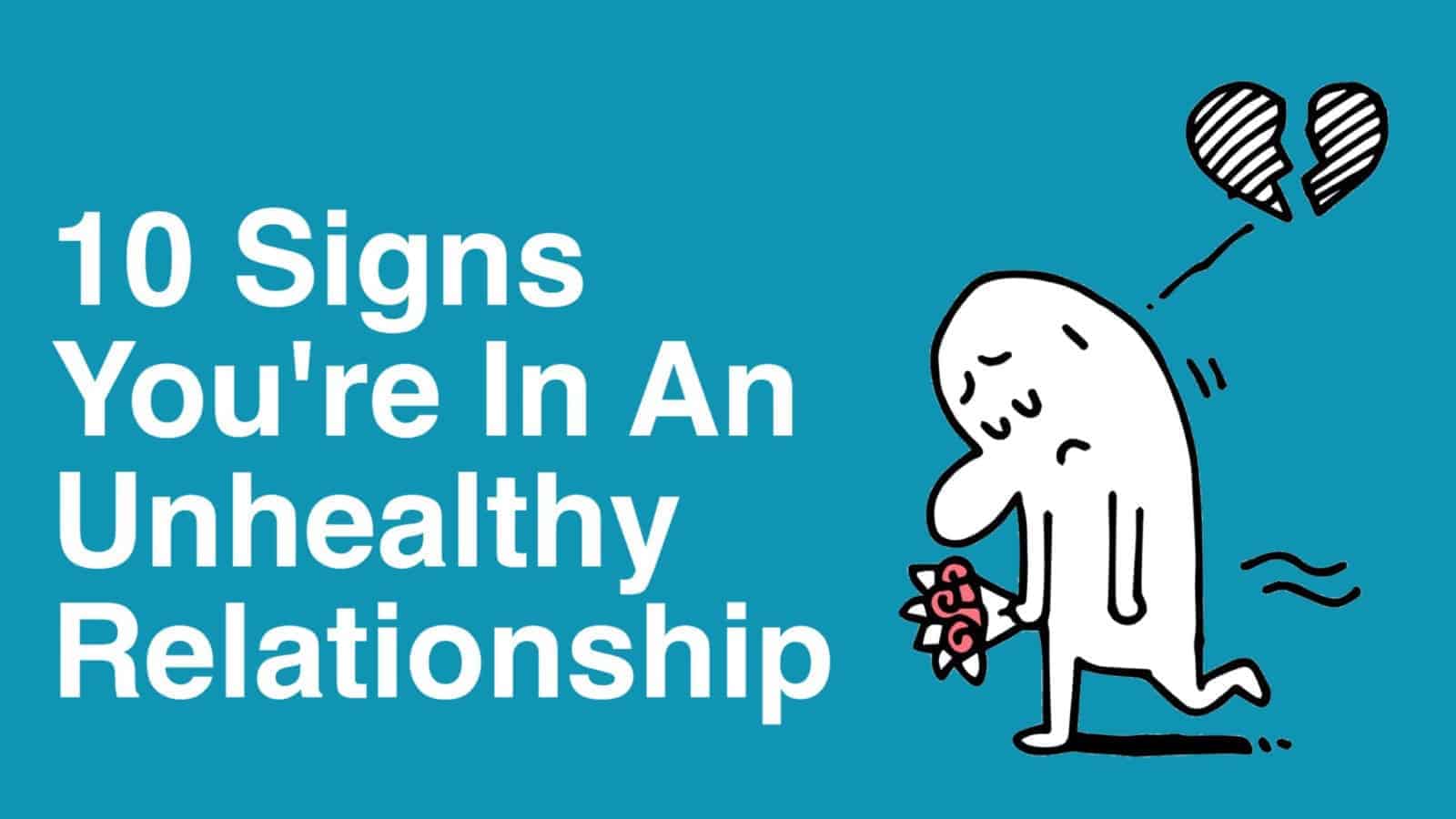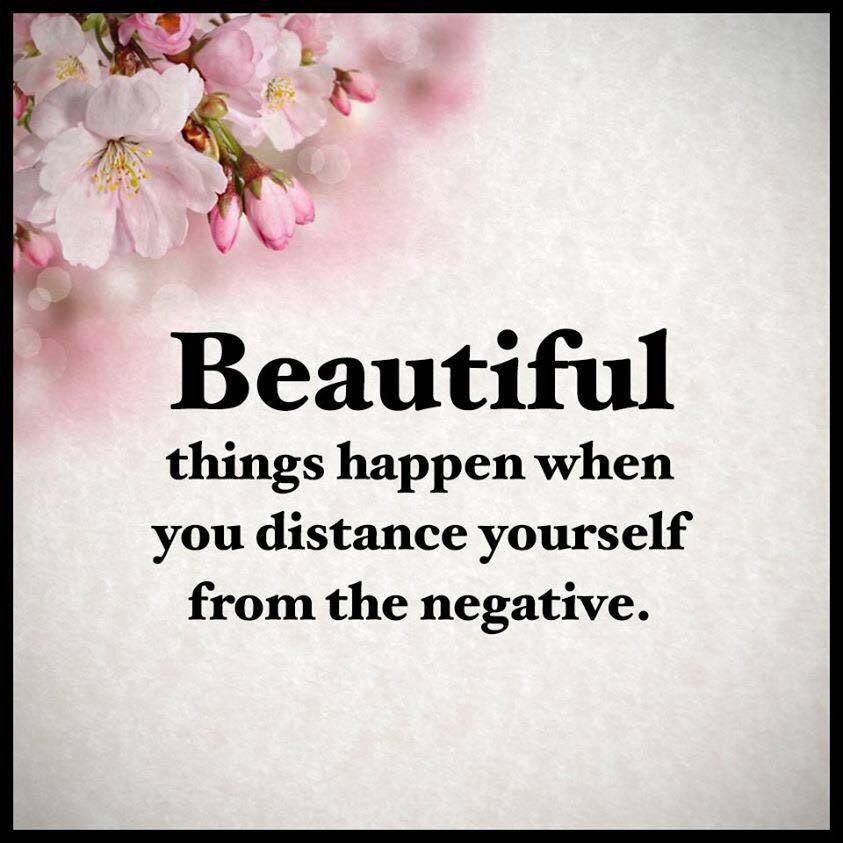An unhealthy relationship can be easy to spot from the outside, but more difficult to recognize when you’re in the middle of one. You may have friends or family coming to you with concerns, but you’re able to easily justify or sweep away trouble behaviors.
“You can put all your effort in trying to make someone happy… but there comes a time when we become tired of trying to fill a bucket that is leaking from the inside.” – Steve Maraboli
Unhealthy relationships don’t always have to involve physical or emotional abuse – though both are immediate red flags that the relationship is unhealthy. Being able to pinpoint the ways your relationship is unhealthy will be able to allow you to take steps to change it, or give you a sign that it’s time to leave.
10 SIGNS YOU’RE IN AN UNHEALTHY RELATIONSHIP
1. CONSTANT CRITICISM
Unhealthy relationships involve one or both partners being endlessly criticized by the other. This criticism doesn’t have to be fair or just, either. Sometimes, it’s simply a way for one partner to control the other. This may happen in front of other people, as a way to show their power. Be honest with yourself and whether or not your partner is criticizing you fairly or whether they’re doing it to gain emotional control of you. Being able to stop this sign can give you the knowledge to get out of the unhealthy relationship.
2. POOR COMMUNICATION
Communication is the backbone of all healthy relationships. Being able to discuss your feelings and communicate with your partner is one of the best ways to make a relationship work. Unfortunately, a relationship becomes unhealthy when the communication is lacking, or only one partner is putting in any effort. Ask yourself honestly if you feel comfortable expressing your emotions to your partner, and if the answer is no, you may want to figure out why. Counseling can help give a safe space for both of you to work on your communication issues.
3. PASSIVE AGGRESSIVE BEHAVIOR
Everyone has known someone who is passive aggressive. When your partner begins to display this type of behavior, it is a show of manipulation and an attempt to control what you do by giving you a choice between either doing what you’re told or facing a cold shoulder. Passive-aggressive behavior can also manifest in purposely failing to do something that was asked of them, or purposeful procrastination in anything from cleaning the fridge to displaying and withholding affection.
4. CODEPENDENCY
When you’re unable to separate yourself from your partner, this is a sign of codependency. Codependent behavior enables negative traits in one another, such as the support of addictive behaviors, irresponsibility or mental illness. Being codependent is not the same as having a support system. Codependency is a way for one party to control the other by making them dependent on their validation. The best way to break free of codependent behavior is to have a support system outside of your relationship, whether that’s friends, family or a counselor.
5. VERBAL ABUSE
Verbal abuse is a type of emotional abuse that stems from one partner trying to manipulate and control the other through shame, degradation and manipulation. A verbally abusive partner indicates that your relationship has turned unhealthy, and you should leave. Confide in friends, family and counselors who can help you take the steps you need to end the relationship. Verbal abuse is not something anyone should have to endure to feel worthwhile, and will only eventually make the relationship unsustainable.
6. PHYSICAL ABUSE
When your partner becomes physically abusive, there’s nothing left in the relationship for it to grow. A healthy relationship is not possible when one partner uses threats of violence, or actual violence, to control and manipulate their partner. Physical abuse can be anything from smacking, hitting, slapping, kicking, punching, shoving, or even forced sex. Physical abuse can start slow, but even if the first sign was just a rough shove, you don’t deserve it. Make a plan with your support network to get out as soon as you can. One-time incidents are rare, and are usually a precursor towards the abuse getting worse.
7. DISHONESTY
Being honest and open with one another is a major component of healthy relationships. If you don’t feel safe sharing with your partner, your relationship is going to suffer. And if your partner is keeping things from you, then the relationship won’t work, either. It’s so easy to lose trust when your partner finds out that you’ve been keeping things from them, even things you don’t think matter. If you don’t feel safe sharing things with your partner, it may be a sign that your relationship isn’t going to work in the long run.
8. SEXUALLY FOCUSED
Sometimes, relationships can be casual and sex can be fun. However, if you have a long-term relationship that you’re putting emotional effort into, and find that your partner is only putting in the physical intimacy, the relationship becomes unbalanced and unhealthy. Lasting relationships need both emotional and physical intimacy. Sometimes, it’s better to forgo the fun of sex to seek out a relationship that will be longer-lasting and emotionally satisfying.
9. THREATENING TO LEAVE
When one partner threatens to leave as a means of controlling the other, the relationship is no longer balanced. Without a balanced relationship, it becomes immediately unhealthy. You will not be able to feel secure in the relationship if you’re constantly walking on eggshells worrying if something that you do will cause them to threaten to leave you. The best thing to do is to take the matter into your own hands, and end it as quickly and safely as you can.
10. TRYING TO CHANGE YOU
Your relationship won’t go anywhere if your partner doesn’t like you exactly the way you are. Using threats, passive aggressive behavior and manipulation to try and change you means that your partner sees you as something they can control. Relationships thrive on love and acceptance, not on one partner being a project to be fixed up and remedied. You deserve someone who will accept you exactly the way you are.
If you see any of these signs in your relationship, it may be time to evaluate what you want out of a partnership and whether or not you see that happening. Ending relationships can be tough, especially unhealthy ones. However, if you have a support system in place and are able to do so, ending a relationship that’s unhealthy is better for you and your partner in the long run, so that you can both get the help you need to move forward.














 Community
Community

